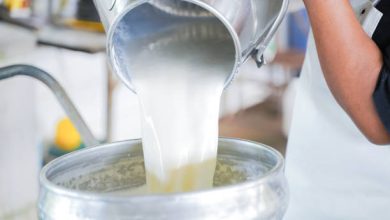TDB urges informal traders to embrace value addition

DAR ES SALAAM: THE Tanzania Dairy Board (TDB) has called on informal dairy products traders to shift towards value-added processing to improve consumer safety, enhance product standards and expand market access, ultimately boosting their incomes.
The TDB Acting Technical Service Manager, Ms Deorinidei Mng’ong’o urged traders to cease unregulated operations, warning that such practices risk consumer health, compromise product quality and damage the reputation of the dairy industry.
She was speaking to journalists in Dar es Salaam on Tuesday ahead of the National Milk Week, which will be held from May 27 to June 1 this year in Morogoro Region.
“People should stop buying raw cow’s milk sold informally in plastic bottles along the roads and instead opt for safe, processed milk for better health. We urge those engaged in informal milk trade to cease these practices and follow proper procedures for selling processed milk, which has higher value, increases income and ensures public safety,” said Ms Mng’ong’o.
She added, “We have been encouraging the consumption of safe, processed milk. Street-sold milk is dangerous as it is often stored in unhygienic conditions that pose serious health risks to consumers.” Ms Mng’ong’o explained that milk contains many nutrients, making it particularly susceptible to bacterial contamination.
ALSO READ: TDB keen to boost milk consumption
Therefore, raw cow’s milk sold in plastic bottles on the streets is highly unsafe due to exposure to unhealthy environments.
She also mentioned that the board has successfully registered 130 producers, 69 processors, 86 traders, 24 milk importers, 10 milk exporters, 41 milk collectors and seven distributors.
Additionally, she noted that milk processing has increased from 81.8 million litres in 2023/2024 to 90.4 million litres in 2024/2025, marking an 11.7 per cent increase. The board has been making various efforts, including providing education and encouraging livestock keepers to use quality breeds and urging stakeholders to invest in milk processing.
Ruth Mkope, the Gender and Nutrition Officer from the Tanzania Agriculture Development Bank (TADB), emphasised that cow’s milk contains a wide range of nutrients, making it a complete meal for all people. She urged parents to promote milk consumption among school children without relying on donors.
“For children, milk is a vital source of nutrients essential for their growth and development and it is equally important for adults over 50 for their health,” said Ms Mkope.
She further noted, “Milk helps strengthen a child’s immune system, but animal milk should not be given to children under one year of age.” According to the World Health Organisation (WHO), the recommended annual milk consumption per person is 200 litres, equivalent to 500 millilitres per person per day.





